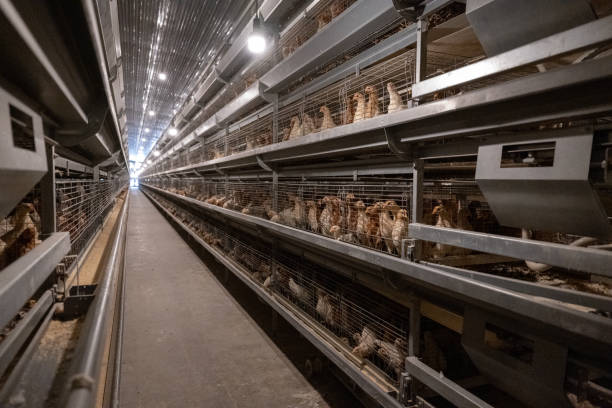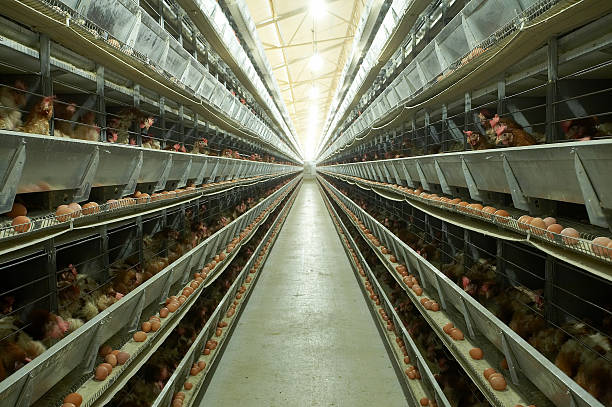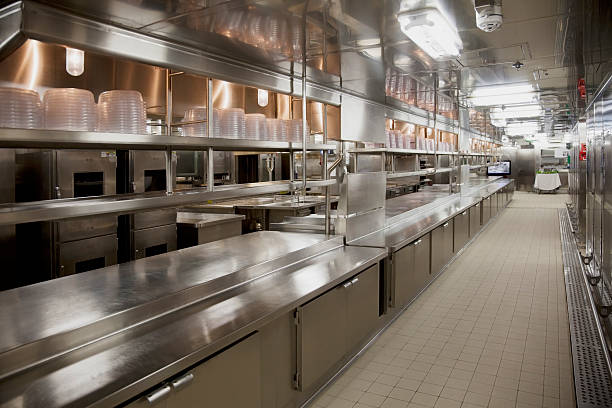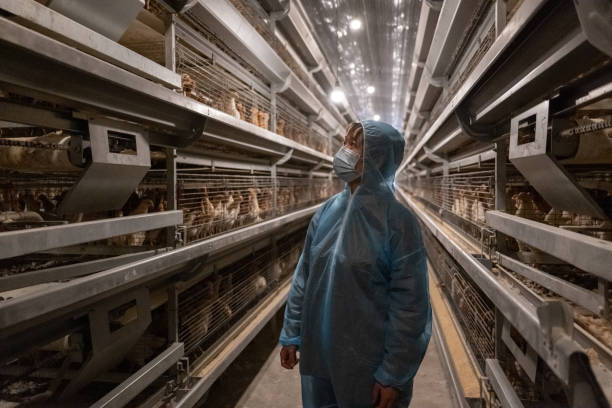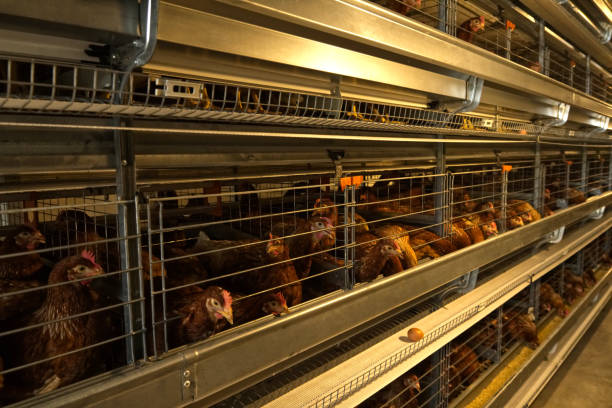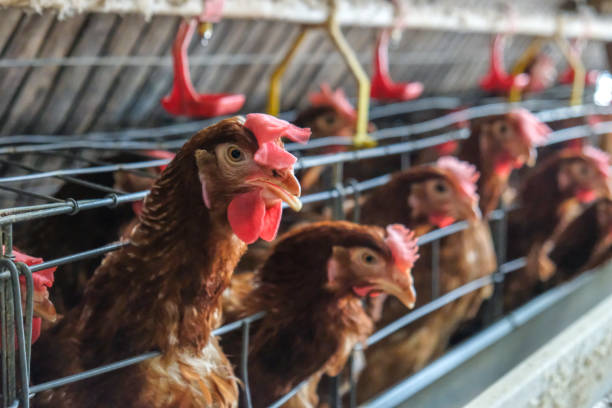Find the Perfect Layer Chicken Cages for Sale to Maximize Your Farm’s Potential
Find the Perfect Layer Chicken Cages for Sale to Maximize Your Farm’s Potential
For poultry farmers, especially those focused on egg production, the choice of layer chicken cages is a pivotal decision. It directly impacts the health and well-being of your hens, the efficiency of your operations, and ultimately, the profitability of your farm. With a plethora of options available, selecting the “perfect” cage can feel overwhelming. This article delves into the world of layer chicken cages, providing insights to help you make informed decisions and maximize your farm’s potential.
Why Layer Chicken Cages Matter
Layer chicken cages go beyond simply housing your birds. They are integral components of a well-managed poultry farm, contributing to:
Improved Egg Production: Modern cage designs optimize space, feeding, and watering, leading to higher egg yields.
Enhanced Hygiene and Disease Control: Cages facilitate easier waste removal, reducing the risk of disease outbreaks and improving overall hygiene.
Better Feed Conversion Ratio: Controlled feeding systems minimize feed wastage and ensure each hen receives the necessary nutrients, optimizing feed conversion.
Simplified Management: Cages streamline poultry management tasks, such as egg collection, inspection, and vaccination.
Reduced Labor Costs: Automated systems integrated with cages can significantly reduce labor requirements, increasing efficiency and profitability.
Types of Layer Chicken Cages for Sale
The market offers a diverse range of layer chicken cages, each with unique features and benefits. Here’s an overview of the most common types:
A-Frame Cages: Among the most traditional layouts, these cages are stacked in an A-shape, offering good ventilation and ease of access for egg collection. They are generally cost-effective but might require more manual labor.
H-Frame Cages: H-frame cages are designed with tiers arranged in a horizontal configuration. This design allows for easier automation of feeding, watering, and egg collection systems, improving efficiency. They provide optimum use of vertical space and better control of the environment.
Vertical or Battery Cages: Vertical or battery cages stack multiple tiers vertically, maximizing space utilization in the poultry house. While effective for large-scale operations, they have sometimes raised concerns regarding hen welfare. However, modern designs focus on better comfort and increased space per bird.
Flat Deck Cages: Ideal for smaller farms or starter houses, flat deck cages consist of a single tier of cages. They allow for easy monitoring of the birds and are more accessible for manual tasks.
Semi-Automatic Cages: These cages include automated feeding and drinking systems but might require manual egg collection. They strike a balance between lower initial costs and improved efficiency.
Fully Automatic Cages: Integrated with automated feeding, drinking, egg collection, and manure removal systems, fully automatic cages maximize efficiency and minimize labor requirements. While the initial investment is higher, the long-term cost savings and improved productivity make them a worthwhile option for large-scale operations.
Factors to Consider When Choosing Layer Chicken Cages
Selecting the right layer chicken cages requires careful consideration of several factors:
Farm Size and Capacity: The size of your farm and the number of hens you intend to house is a primary factor. Battery cages are more suitable for large scale applications, whereas, A-frame units can work for small to midsize applications.
Budget: The cost of layer chicken cages varies significantly depending on the type, materials, features, and level of automation. Establish a budget and explore options within that range without compromising on quality.
Climate: Consider the climate in your region. Cages with good ventilation and temperature control features are essential in hot or humid climates. In colder climates, consider cages that offer insulation and protection from the elements.
Hen Welfare: Animal welfare is an increasingly important consideration. Choose cages that provide adequate space, comfortable flooring, and enrichment features to promote natural behaviors. Check local regulations regarding cage sizing and welfare standards.
Ease of Management: Select cages that are easy to manage, clean, and maintain. Consider features such as removable trays, accessible feeding and watering systems, and corrosion-resistant materials.
Level of Automation: Determine the desired level of automation based on your labor availability and budget. Fully automatic cages can significantly reduce labor costs but require a higher initial investment.
Material Quality and Durability: Invest in cages made from high-quality, durable materials that can withstand the rigors of a poultry farm environment. Galvanized steel is a popular choice due to its corrosion resistance and long lifespan.
Compliance with Regulations: Ensure that the cages you choose comply with all relevant local, state, and national regulations regarding poultry housing and animal welfare.
The Benefits of Investing in Quality Layer Chicken Cages
Investing in high-quality layer chicken cages offers numerous benefits for your poultry farm:
Increased Egg Production: Well-designed cages optimize space, feeding, and watering, leading to better hen health and higher egg production rates.
Reduced Mortality: Cages help protect hens from predators, extreme weather, and injuries, reducing mortality rates.
Improved Egg Quality: Clean and hygienic cages minimize the risk of egg contamination, resulting in higher quality eggs.
Better Feed Conversion: Controlled feeding systems minimize feed wastage and ensure each hen receives the necessary nutrients, optimizing feed conversion.
Lower Labor Costs: Automated systems integrated with cages can significantly reduce labor requirements, increasing efficiency and profitability.
Better Disease Control: Cages facilitate easier waste removal and disinfection, reducing the risk of disease outbreaks and improving overall biosecurity on the farm.
Extended Cage Lifespan: Investing in durable, high-quality cages ensures a longer lifespan, reducing the need for frequent replacements and saving money in the long run.
Where to Find Layer Chicken Cages for Sale
Layer chicken cages are available from various sources, including:
Poultry Equipment Suppliers: Specialized poultry equipment suppliers offer a wide range of cages, along with expertise and support. They can help you choose the right cages for your farm’s specific needs and provide installation and maintenance services.
Agricultural Supply Stores: Many agricultural supply stores carry a selection of layer chicken cages, particularly for smaller-scale operations.
Online Marketplaces: Online marketplaces offer a convenient way to compare prices and features from different suppliers. However, it’s essential to choose reputable sellers and carefully review product descriptions and customer reviews.
Direct from Manufacturers: Purchasing directly from manufacturers can offer cost savings and more customization options. However, you may need to handle the installation and maintenance yourself unless services are offered from the manufacturer.
Used Equipment Dealers: If you’re on a tight budget, consider purchasing used layer chicken cages. However, carefully inspect the cages for damage, wear, and tear before making a purchase.
Questions to Ask Suppliers Before Buying Layer Chicken Cages
Before committing to a purchase, ask potential suppliers the following questions:
What types of layer chicken cages do you offer? Ask about the different types of cages available, their features, and their suitability for your farm’s specific needs.
What materials are the cages made of? Inquire about the materials used in the cages’ construction, such as galvanized steel or plastic. Choose materials that are durable, corrosion-resistant, and easy to clean.
What is the cage capacity? Determine the number of hens that each cage can comfortably house. Ensure that the cage capacity is sufficient for your flock size.
What are the dimensions of the cages? Measure the available space in your poultry house and ensure that the cages will fit properly.
Do the cages comply with animal welfare regulations? Ensure that the cages meet all relevant local, state, and national animal welfare regulations.
What is the warranty? Ask about the warranty offered on the cages. A good warranty indicates the supplier’s confidence in the quality of their products.
Do you offer installation and maintenance services? Inquire about installation and maintenance services. Proper installation and maintenance are essential for ensuring the longevity and performance of your cages.
What are the payment options? Check on the payment method. Payment terms and financing options must be discussed.
Can you provide references from other customers? Ask for references from other customers who have purchased layer chicken cages from the supplier.
Maintaining Your Layer Chicken Cages
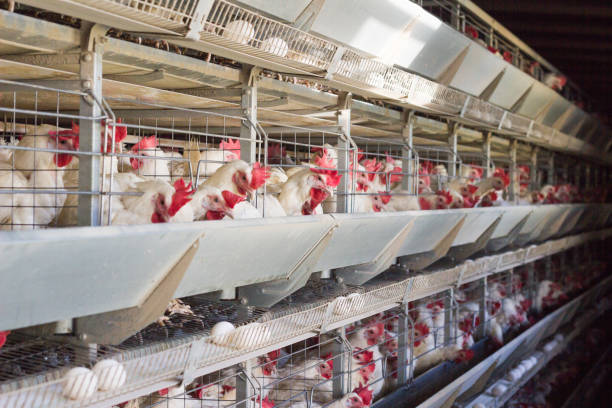
Proper maintenance is essential for extending the lifespan of your layer chicken cages and ensuring optimal performance. Here are some tips for maintaining your cages:
Clean the cages regularly: Remove manure, feathers, and debris from the cages regularly to maintain hygiene and prevent disease outbreaks.
Disinfect the cages: Disinfect the cages periodically using a poultry-safe disinfectant.
Inspect the cages for damage: Regularly inspect the cages for damage, such as broken wires, loose connections, or corroded areas.
Repair or replace damaged parts: Repair or replace damaged parts promptly to prevent further damage and ensure the structural integrity of the cages.
Lubricate moving parts: Lubricate moving parts, such as hinges and latches, to ensure smooth operation.
Adjust feeding and watering systems: Regularly adjust the feeding and watering systems to ensure that each hen receives adequate feed and water.
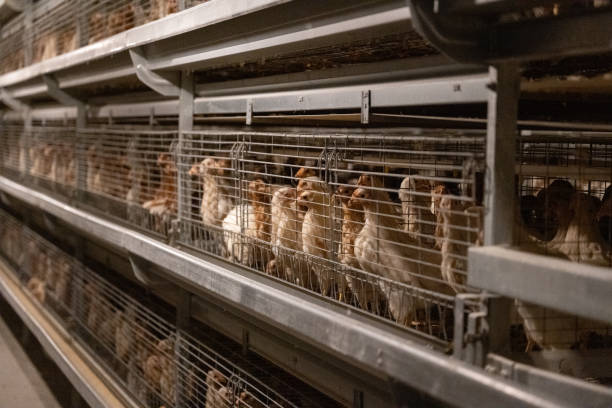
Monitor hen health: Closely monitor the health of your hens and seek veterinary attention if you notice any signs of illness.
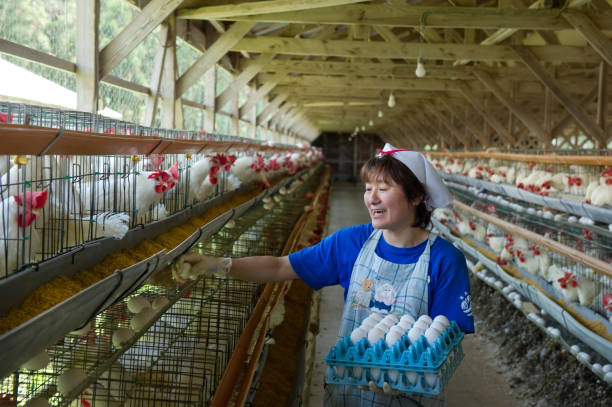
Layer Chicken Cages: More Than Just Housing
Layer chicken cages are a critical investment for any poultry farmer focused on egg production. Selecting the right cages can significantly improve hen health, egg production, feed conversion, and overall farm efficiency. By carefully considering the factors outlined in this article, you can find the perfect layer chicken cages for sale to maximize your farm’s potential and achieve long-term success. Investing carefully and choosing the adequate equipment for your poultry farm will provide a greater profit and improve production processes.



